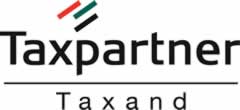Tax Partner AG > Zurich, Switzerland > Firm Profile
Tax Partner AG Offices

TALSTRASSE 80
8001 ZURICH
Switzerland
Tax Partner AG > The Legal 500 Rankings
Switzerland > Tax Tier 1
Tax Partner AG is a tax boutique, comprised of more than 40 tax professionals, that advises clients on the full spectrum of tax law including corporate tax, transfer pricing, transactional tax, tax controversy, and matters relating to VAT. The corporate taxation team includes Natalie Dini, Stephanie Eichenberger, Patrik Schwarb, and Dieter Weber. The individual taxation team is headed by Peter Vogt, while the financial services group is led by Alberto Lissi. Stephan Pfenninger heads the real estate tax team, and Hendrik Blankenstein leads on transfer pricing. René Matteotti spearheads the tax controversy group, while Laurent Lattmann heads the VAT and customs team.Other key lawyers:
Testimonials
‘Tax Partner AG possesses highly desirable qualities for what we are working on. They are helpful, insightful, and friendly.’
‘Alberto Lissi possesses several positive attributes that make him an exceptional Swiss tax advisor – he is approachable and technical. Overall, I consider Alberto one of the best Swiss tax advisors in Switzerland.’
‘René Matteotti has outstanding energy/utility industry knowledge, and provides quick responses.’
‘They are very competent (national and international), very well-connected, very helpful, customer focused and solution oriented.’
‘Laurent Lattmann is a very experienced VAT advisor who always finds the right balance between pragmatism and formalism.’
‘They are knowledgeable in their fields, responsive and solution orientated. It is always a pleasure to work with the professionals from Tax Partner.’
‘I worked several times with Stephan Pfenninger and Laurent Lattmann. Both are outstanding in their main practice areas). I appreciate not only their professionalism, but also their pragmatism and client orientation.’
‘Stephane Pfenninger and Tom Lawson are very reliable, keep due dates and are able to explain tax specific issues to team members less involved in international taxes. That makes them valuable partners for us!’
Work highlights
Tax Partner AG > Firm Profile
Tax Partner AG is an independent tax boutique specialising in Swiss and international tax law. With more than 40 professionals, including 12 partners and counsels the firm advises multinational and national corporate clients as well as individuals.
By combining first-class tax expertise with legal advice and accounting services provided by valued partner firms in Switzerland and abroad, Tax Partner is perfectly positioned to offer a one-stop-shop approach to companies from various industries, including real estate, media, energy, banking & finance and many more.
Clients value the firm’s efficient and client-focused set-up, with partners and counsels always actively involved in day-to-day advice.
Over the years, Tax Partner has consequently built strong relationships with leading service providers engaged in the fields accompanying tax advice, working closely together with both law firms and accounting firms in Switzerland and abroad. By combining the teams’s first-rate tax expertise with legal advice and accounting services Tax Partner is able to offer a one-stop-shop approach to companies from various industries, including media, energy, real estate and banking & finance.
Since its formation in 1997 Tax Partner has grown constantly and is considered a leading player in the Swiss market today. Extensive positive feedback by longstanding clients and peers is reflected in numerous top-tier rankings and awards.
Tax Partner is a co-founder and to date the exclusive Swiss member firm of Taxand, the world’s largest independent tax organisation with around 550 partners and over 2,500 tax advisors from independent member firms in 50 countries.
Main Contacts
| Department | Name | Telephone | |
|---|---|---|---|
| Transfer pricing | Monika Bieri | ||
| Transfer pricing | Hendrik Blankenstein | ||
| Corporate tax, transaction tax, financial services tax | Roger Dall'O | ||
| Corporate tax, private clients, tax litigation | Natalie Dini | ||
| Corporate tax, transactional tax, private clients | Stephanie Eichenberger | ||
| Indirect tax | Laurent Lattmann | ||
| Corporate tax, transaction tax, financial services tax | Alberto Lissi | ||
| Tax litigation, transfer pricing, corporate tax | René Matteotti | ||
| Real estate tax, corporate tax | Stephan Pfenninger | ||
| Corporate tax, private clients | Patrik Schwarb | ||
| Private clients, individual taxation | Peter Vogt | ||
| Corporate tax, private clients | Dieter Weber |
Lawyer Profiles
| Photo | Name | Position | Profile |
|---|---|---|---|

|
Monika Bieri | Partner | View Profile |

|
Mr Hendrik Blankenstein | Counsel | View Profile |

|
Mr Roger Dall'O | Partner | View Profile |

|
Mrs Natalie Dini | Partner | View Profile |

|
Mrs Stephanie Eichenberger | Partner | View Profile |

|
Mr Laurent Lattmann | Partner | View Profile |

|
Dr Alberto Lissi | Partner | View Profile |

|
Prof Dr iur René Matteotti | Of Counsel | View Profile |

|
Dr Stephan Pfenninger | Partner | View Profile |

|
Mr Patrik Schwarb | Partner | View Profile |

|
Mr Peter Vogt | Partner | View Profile |

|
Mr Dieter Weber | Partner | View Profile |
Staff Figures
Number of professionals : 45Languages
German English French Italian DutchMemberships
TAXANDFocus On
Will Switzerland’s partial VAT revision bring a new era?
After a slight increase in VAT rates at the beginning of this year and the abolition of customs duties on industrial products, the next round of changes in the area of VAT is around the corner. Although the Federal Council has not yet confirmed the official enactment date, it is expected that the VAT changes will become effective January 1st, 2025. The partial revision does not contain groundbreaking developments, and the Swiss VAT system will continue to tax the local supplies of goods and services like any consumption tax around the world. Nevertheless, some of the changes are worth being explained and analyzed in more detail, as they will for sure impact foreign suppliers selling to Swiss customers, but also local transactions are affected by some of the new rules.
Like every country in the world, Switzerland is also trying to get to grips with the increasing distance selling business as a result of globalization and digitalization. Back in 2019, Switzerland changed its VAT rules to require foreign-based distance sellers selling into Switzerland and making use of the Low Value Consignment Relief (LVCR) in the context of the importation to register for VAT. Instead of abolishing the LVCR rules, it decided to implement guidelines according to which foreign suppliers have to register if the supplies made to Swiss based clients falling under the LVCR rules exceeded CHF 100,000 per year (approx. USD 110,000 or € 103,000). Has this attempt led to an increase in the number of foreign VAT payers in Switzerland? Yes, it did, but it was hardly noticeable. Today, Swiss customs is still struggling with the sheer volume of consignments, and often such consignments do not even lead to taxation since either the value declared is too low and falls under the LVCR threshold, or the foreign supplier does simply not comply with local tax regulations and does not register for VAT purposes in Switzerland.
The new provisions for sales through electronic platforms
Looking at the new provisions that will come into force on January 1, 2025, one inevitably concludes that Switzerland has been closely following developments in the EU with regard to the role of electronic platforms, distance selling regulations, and the recently introduced Import-One-Stop-Shop (IOSS) provisions. However, it has decided not to introduce identical rules but has opted for the “Swiss” way, which is a bit of a mix of all these tools. In practice, the new provisions work as follows:
- The commercial and legal sale between the seller and the buyer is replaced for VAT purposes by two notional supplies.
- The first notional supply takes place between the seller and the electronic platform. This transaction is zero-rated.
- The second notional supply is the one between the electronic platform and the buyer. This one is, in any case, subject to VAT.
- The electronic platform is held liable for the VAT due on the sales transaction, but the seller remains subsidiarily liable for the VAT due.
So instead of obliging the electronic platforms to collect and transmit data to the tax authorities, which would then have to analyze and evaluate the data and contact the seller to collect the VAT owed – and at the same time abolish the provisions of the LVCR – has decided to shift the obligation to collect and pay VAT entirely to the electronic platforms. The provisions will, however, not only apply to electronic platforms operated by Swiss established entities but also to foreign-based operators.
Example 1
Company A, established in Switzerland, is a regular VAT payer. It sells its products through its own web shop, but also through an electronic platform specializing in similar products. The operator of the electronic platform B is also a Swiss company. Client C purchases goods from A directly using the web shop, while client D purchases the goods through the electronic platform run by B.
Company A establishes two invoices, one for the sale made to client C and one for the sale made to client D. It is clear that the invoice issued to client C has to contain Swiss VAT at the applicable rate. How the invoice issued to D has to look like, or if A has to issue a second invoice for VAT purposes only to B, will have to be clarified by the SFTA. A is, however, only liable for the VAT mentioned on the invoice sent to client C, while the electronic platform is responsible for the payment of the VAT due on the sale to client D.
What sounds simple in theory is not so easy to implement in practice. The seller acknowledges a turnover from the sales to C and D. Both sales transactions must be recorded in his accounting system with a corresponding VAT code in order to create a VAT-compliant invoice. But only the VAT amount of the invoice issued to C is actually received and is to be settled by the seller. However, the technical treatment of the VAT amount owed by D is somehow unclear and depends on the facts and circumstances: If the electronic platform is involved in processing customer D’s payment, it can retain the VAT amount and forward the net amount to seller A. Though, if the electronic platform is not involved in processing the payment, the question arises as to how the VAT due is passed on to the platform operator. Platform operators that offer a complete package, including billing and payment processing, are in a much better position than those that do not.
Unsurprisingly, these new rules apply to both domestic and cross-border transactions, with a particular focus on inbound transactions. Today, these remain largely untaxed because foreign operators of electronic platforms often declare incorrect values that are too low for the import VAT being levied, thus making unauthorized use of the LVCR regulations.
Example 2
Company U, established in the US, is not registered as a VAT payer in Switzerland. It sells its products (with a value above the LVCR threshold) through its own web shop, but also through an electronic platform specializing in similar products. The operator of the electronic platform is V, a company established in the UK. Client C purchases goods from U directly using the web shop, while client D purchases through platform V.
Company U establishes two invoices, one for the sale made to client C, one for the sale made to client D. Since U is not registered for Swiss VAT purposes, it does not refer to any Swiss VAT in its invoice. As U is selling on a customs uncleared basis, it is client C that has to bear the Swiss import VAT on the import of the goods. Assuming that U has declared the correct value of the goods, C will have to bear VAT in the same amount as if he had purchased the goods locally. All fine, and seller U does not have to fulfill any obligations in Switzerland.
The operator V may be liable for VAT in Switzerland on the transactions carried out by company U on its electronic platform. The obligation to register for VAT in Switzerland depends on whether the electronic platform sells goods below the LVCR threshold and generates turnover exceeding the registration threshold of CHF 100,000 or, if the consignments do not fall under the LVCR rules, whether it wishes to customs clear the goods using the subordination license or not. If V wishes to register for VAT in Switzerland, it is obliged to pay VAT on all sales to Swiss customers. It is, however, no longer important whether company U, which sells the goods to D, is already registered for Swiss VAT purposes or not. V is stepping in, and is responsible for all VAT compliance and payment obligations resulting from the sales made by U to D.
The new rules will for sure cause confusion, especially for foreign suppliers who have their goods delivered to Switzerland through several distribution channels. Which deliveries to Swiss customers are subject to Swiss VAT and which are not? Who must act as the importer of record at the border, the foreign supplier, the operator of the electronic platform, or the customer in Switzerland? What should be done if the foreign supplier grants a full or partial refund to the Swiss customer who purchased the goods via the electronic platform?
To make matters worse, with regard to supplies that are subject to the LVCR regulations, the legislator has now also given the SFTA the legal tools to confiscate imported goods and, in the worst case, to destroy them without compensation in the event of offences or non-compliance with tax obligations by the electronic platform. This is therefore not just a legal change to be taken lightly, but one in which the SFTA could actually have the upper hand. Even if the possibilities of enforcing financial claims are limited to electronic platforms operated by EU companies, the possibility of confiscating and destroying the goods alone is reason enough to follow the Swiss rules of the game. Of course, it cannot be ruled out that foreign operators of electronic platforms will no longer serve Switzerland due to its size, despite the existing purchasing power. In that case, the legislator would have scored a goal of his own.
Changes for Swiss based tour operators
Another change that will come into force is that local travel services will no longer be taxable but will become VAT-exempt without the right to claim back input VAT. The reason for this change lies mainly in the current obligation for foreign tour operators to register for VAT purposes for their sales of local travel arrangements. Since this obligation could not be enforced in the past and led to competitive distortions between Swiss and foreign based tour operators, the Swiss legislator decided to exclude local travel services entirely from the application of VAT.
Unlike the EU, Switzerland does not have a Tour Operating Margin Scheme (TOMS). Instead, local travel arrangements are taxed on inbound transactions at the applicable rate, which is currently 8.1% standard and 3.8% special for accommodation services. Input VAT incurred on local expenses is fully recoverable. Outbound travels, i.e., cross-border trips or trips that take place entirely outside Switzerland, are treated as zero-rated services. The different approach, in combination with the applicable TOMS legislation in the EU, attracted in the past a lot of EU-based tour operators to operate from Switzerland. As such, they could benefit from the non-applicability of the TOMS rules while benefiting of a full input VAT recovery rate in Switzerland.
As of January 1, 2025, tour operators’ activities will no longer be subject to Swiss VAT. However, travel activities taking place outside of Switzerland will nevertheless be entitled to input tax credit, similar to other VAT exempt activities carried out outside of Switzerland, enabling the service supplier to claim Swiss input VAT incurred on general expenses. This change will result in additional complexity for Swiss based tour operators, as they will no longer be entitled to a full input tax credit, but will see their recovery rate drop while foreign tour operators might cancel their Swiss VAT registration with effect from January 1, 2025.
Changes related to emission rights and certificate trading
Quiet and almost imperceptible are the changes introduced by the partial revision to the taxation of emission allowances and emission rights. For the first time ever, Switzerland extends the reverse-charge mechanism to one particular local transaction. This is a novum, and it cannot be predicted if the local application of the reverse-charge mechanism will further be extended, similar to the application in other jurisdictions.
In practice, this means that foreign suppliers registered for VAT in Switzerland – and even companies with their place of business in Switzerland – are no longer required to charge local VAT on their sales of such certificates to their Swiss counterparties. As you may know, the Swiss VAT system provides that a foreign supplier registered for VAT in Switzerland cannot pass on to the recipient the obligation to account for the local VAT under the reverse-charge mechanism. The Swiss VAT registration therefore entails the obligation to charge VAT on all local supplies without exception, so far. This principle is known as the force of attraction and refers to the consequences of VAT registration in Switzerland. Starting January 2025, this force of attraction will no longer apply to the trading of emission rights and certificates. However, as the Swiss approach provides that even if the VAT is incorrectly invoiced by the supplier, it can be deducted as input VAT, neither the seller nor the buyer of such certificates will bear any risk if VAT is nevertheless invoiced by the seller.
Conclusions
The amendments to the existing VAT law will not revolutionize the VAT landscape in Switzerland, as mentioned in the introduction. But the changes related to the transactions carried out by means of an electronic platform have the potential to complicate sales, invoicing, reporting, and payment obligations in many ways for Swiss-based and foreign platform operators. It cannot be ruled out that this is exactly what the Swiss legislator wants to achieve. It might have been easier just to abolish the LVCR rules, in particular after having abolished customs duties on industrial products earlier this year. The other changes may also impact foreign entrepreneurs being registered in Switzerland for VAT purposes, and, therefore, assessments and proactive measures in the course of this year are recommended.
Laurent Lattmann
Partner VAT
laurent.lattmann@taxpartner.ch
Urs Kipfer
Senior Advisor VAT
- Tax

